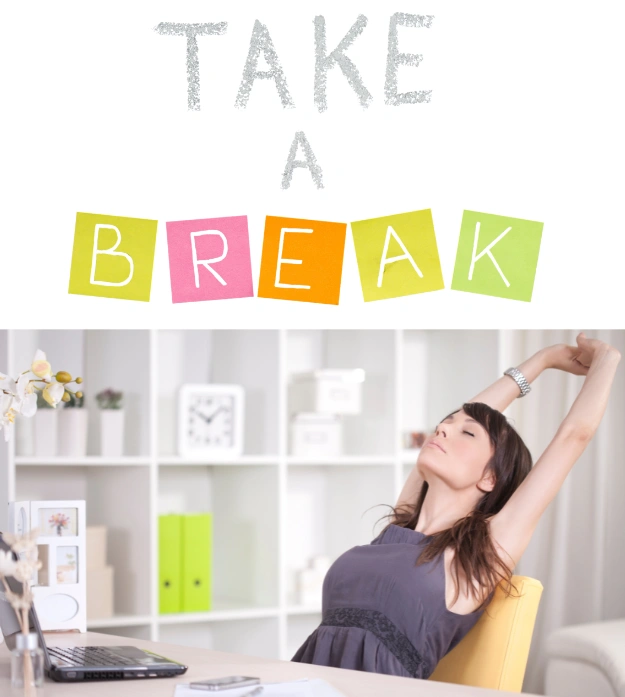
If you have ADHD, chances are the seemingly simple question of “What’s for dinner?” has left you staring at your fridge as though it’s the final boss in a video game. You’re not alone. For many ADHDers, the endless stream of decisions we face every day—big and small—can drain our mental energy faster than a phone battery with too many apps running. And by the time the dinner dilemma rolls around, your executive function is waving a white flag.
Let’s dive into why decision fatigue hits so hard for ADHD brains, why it turns routine choices into Herculean tasks, and what you can do about it (spoiler alert: there will be hacks—and humor—ahead).
Why Is Decision-Making So Draining for ADHD Brains?
Here’s the deal: Decision-making requires a lot of brainpower, especially when your brain has ADHD. It taps into the part of your brain responsible for executive function—that is, planning, prioritizing, organizing, and, you guessed it, deciding. Unfortunately, ADHD tends to make executive function a little… glitchy.
Here’s why:
- Overthinking Everything: ADHD brains love to make mountains out of molehills. Choosing between spaghetti and tacos? Your brain turns it into a full-blown debate with pros, cons, and a mental PowerPoint presentation.
- Fear of Regret: ADHDers often struggle with emotional regulation, so the thought of making the “wrong” choice can feel catastrophically awful—even if we’re just talking about what to order at a drive-thru.
- Decision Overload: ADHD brains get overwhelmed more easily by too many options. Even a short menu can feel like an SAT test in disguise.
- Time Blindness: Decisions often involve predicting future outcomes, and ADHDers aren’t exactly known for their stellar time management. (Will tacos make me feel sluggish tomorrow? Will spaghetti take too long to cook? Who knows?)

Add these quirks together, and you’ve got a recipe for decision fatigue.
Real-Life Example: The “What’s for Dinner?” Saga
Picture this: It’s 5:30 PM. You’re hungry, your family is asking about dinner, and your fridge looks like a game of Tetris gone wrong. You think, Maybe I’ll make pasta. Then you remember you’re out of sauce. Okay, what about grilled cheese? Oh wait, you’re out of bread. Now you’re spiraling, Googling “easy dinner recipes” while your stomach growls louder than your dog when the mailman arrives.
Suddenly, an hour has passed, and you’re too overwhelmed to cook anything, so you order pizza for the third time this week—which makes you feel guilty, which adds to the overwhelm. Sound familiar?
How to Outsmart Decision Fatigue
The good news? You can reduce decision fatigue and reclaim some mental energy by using a few ADHD-friendly strategies. Let’s break them down:
1. Pre-Made Decision Lists
ADHDers thrive on structure (even if we pretend we hate it). One way to lighten your cognitive load is by creating a go-to list of decisions in advance.
- Example: Make a list of 7-10 dinner ideas you can rotate through. Write them down and stick it on your fridge. Bonus points if the ingredients are already in your pantry!
- Pro Tip: Keep it simple. No one’s judging your “chicken nuggets and carrot sticks” night.
Why it works: Having pre-made options reduces the need to think on the spot, which is when ADHD brains tend to get overwhelmed.
2. Limit Your Choices
Too many options are kryptonite for ADHD brains. Instead of agonizing over endless possibilities, give yourself a smaller menu to choose from.
- Example: When grocery shopping, buy ingredients for just 3-4 meals instead of trying to plan for an entire week.
- Pro Tip: Apps like Yummly or Mealime can suggest recipes based on what’s already in your fridge, cutting down on decision-making time.
Why it works: Fewer options = less mental overload.

3. The Art of Delegation
Not every decision needs to be yours. Handing off decisions to someone else can be a game-changer.
- Example: Let your partner, roommate, or kids pick what’s for dinner—but give them parameters (e.g., “Choose between pizza or stir-fry”).
- Pro Tip: If you’re dining solo, let technology decide for you. (Ever used a “What Should I Eat?” app? It’s like a Magic 8-Ball for dinner.)
Why it works: Delegating frees up your mental energy for more important things—like figuring out why your dog is barking at the vacuum again.
4. Use Routines to Your Advantage
Establishing routines can take decision-making off your plate entirely.
- Example: Designate specific meals for specific days. Taco Tuesday, Pasta Wednesday, Takeout Friday. Boom, decisions made.
- Pro Tip: Keep a backup frozen meal on hand for those days when you just can’t.
Why it works: Predictability reduces the mental gymnastics of deciding from scratch.
5. Focus on the First Step
When decisions feel overwhelming, break them down into micro-decisions.
- Example: Instead of asking, “What’s for dinner?” ask, “What protein do I want?” or “What’s in my fridge that’s easiest to cook?”
- Pro Tip: Sometimes just starting the process (e.g., boiling water for pasta) gets you unstuck.
Why it works: ADHD brains often need a gentle push to get started. Focusing on one step reduces the overwhelm of the bigger picture.

6. Take Decision Breaks
Your brain is not a machine; it needs rest. Schedule breaks where you consciously avoid making any decisions.
- Example: Spend 10 minutes lying down, meditating, or doodling—anything that gives your brain a breather.
- Pro Tip: Set a timer so your “break” doesn’t accidentally turn into a two-hour TikTok binge.
Why it works: A refreshed brain is better at tackling decisions.
Real-Life Hack in Action
Meet Lisa, an ADHDer who used to dread meal planning. Every evening, she’d waste 45 minutes debating dinner, only to end up ordering takeout. Then she tried pre-made decision lists and meal routines.
- Step 1: She made a list of 10 favorite dinners (like spaghetti, grilled cheese, and sheet-pan chicken).
- Step 2: She assigned meals to days of the week (e.g., Monday = leftovers, Thursday = tacos)
- Step 3: She kept a frozen pizza in her freezer as a guilt-free backup.
Now? Dinner takes 5 minutes to decide, she’s saving money, and she has more brainpower to spend on other tasks—like solving the mystery of why her dog thinks the vacuum is evil.
Closing Thoughts: Small Changes, Big Impact
Decision fatigue is a real struggle for ADHD brains, but it doesn’t have to derail your day. By simplifying choices, creating routines, and giving yourself permission to delegate, you can outsmart the overwhelm. Remember, it’s not about being perfect; it’s about finding what works for you. And if all else fails? There’s no shame in pizza. Again.
Now go forth and conquer dinner—one small decision at a time.


